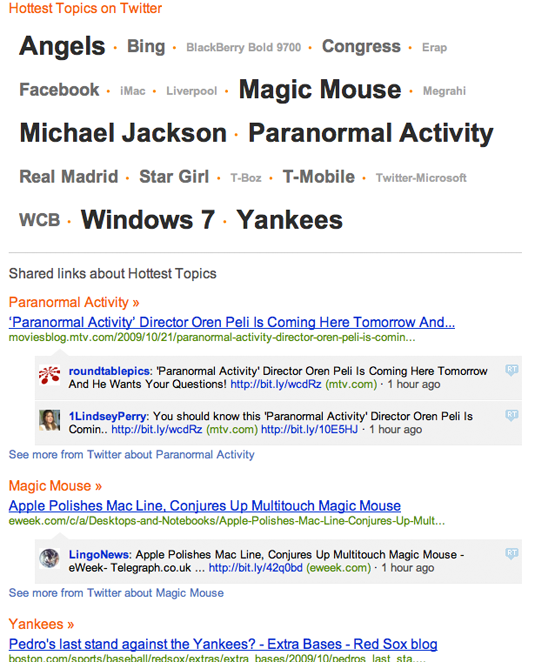 It’s just a rumor, but a fascinating one: Rupert Murdoch’s News Corp. is supposedly talking to Microsoft about some sort of deal that would involve Microsoft giving News Corp. a boatload of cash to block Google from indexing its news sites, so Microsoft’s Bing could step in and become News Corp.’s official search engine. I have no idea whether there’s any truth to it, but the idea plays into the whole “Google should be paying content companies” meme that Murdoch and others have been pushing.
It’s just a rumor, but a fascinating one: Rupert Murdoch’s News Corp. is supposedly talking to Microsoft about some sort of deal that would involve Microsoft giving News Corp. a boatload of cash to block Google from indexing its news sites, so Microsoft’s Bing could step in and become News Corp.’s official search engine. I have no idea whether there’s any truth to it, but the idea plays into the whole “Google should be paying content companies” meme that Murdoch and others have been pushing.
If Murdoch was to yank his news sites out of Google’s index, that would only leave…well, all of the world’s news sources except for those owned by Rupert Murdoch. You gotta think that the harm to Google would be minimal, and that the harm to Murdoch’s sites might be considerable. If most of the world uses Google to find stuff–and it does–don’t you want your stuff to be there? Or can you imagine saying to yourself “Hmmm, I want to make sure that the New York Post shows up in my search results–guess I’ll use Bing?”
As a consumer, the notion of search engines cutting deals with content companies to opt in or opt out of certain engines leaves me antsy. If the practice caught on, we’d be left with a scenario in which no search engine could aspire to be comprehensive, and we’d be stuck having to use several engines if we wanted to find everything of value.
Even so, I remain in the apparent small minority of pundits who would like to see Murdoch do something about the supposed relentless persecution of his poor, struggling business by a bullying, thieving Google. If that something involved an alliance with Microsoft, everybody involved would learn a lot, no?

 Clicker, the search engine for TV shows on the Web that was
Clicker, the search engine for TV shows on the Web that was 
 Did I just hear another shoe dropping? Shortly after
Did I just hear another shoe dropping? Shortly after  Back in July, Bing
Back in July, Bing 
 Shopping search engine
Shopping search engine  Last week I told you my story about how I found someone on the Internet (see
Last week I told you my story about how I found someone on the Internet (see